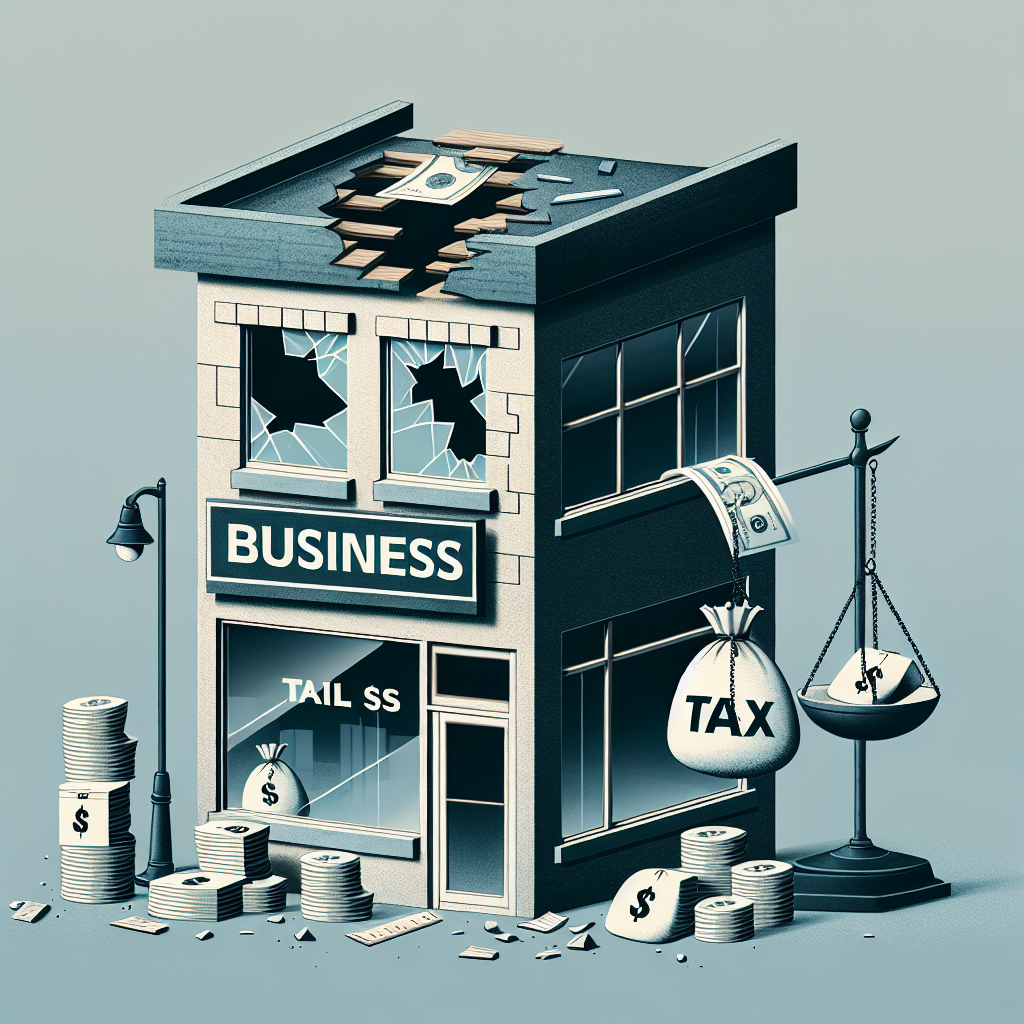Filed under Business Insurance on
Tax Implications of Business Property Damage Claims

When a business experiences property damage, whether from a natural disaster, accident, or other unforeseen event, the focus typically shifts to restoration and recovery. However, amidst the chaos of repairs, a crucial aspect that often gets overlooked is the tax implications of business property damage claims. Understanding how these claims can affect your business's taxes is essential for effective financial management. This guide delves into the complexities of these implications, presenting useful insights for business owners navigating these challenging waters.
Understanding Business Property Damage Claims
Property damage claims serve as a financial safeguard for businesses suffering from property loss or damage. These claims are typically filed under a business's insurance policy, aiming to recover costs for repairs or replacements. Recognizing the fine line between reimbursements and profits is vital because the manner in which these claims are handled can significantly impact a business's tax obligations.
Key Tax Considerations for Business Property Damage
When it comes to tax implications of business property damage claims, there are several pivotal factors to consider. These factors not only influence the base amount eligible for tax but also affect the overall financial strategy of the business. Below, we delve into the crucial tax considerations every business should keep in mind.
- Insurance Reimbursements: The compensation received from insurance claims can be taxable. If the reimbursement exceeds the adjusted basis of the property (typically its cost minus depreciation), it can lead to a taxable gain.
- Casualty Loss Deductions: Businesses can potentially deduct losses from property damage, known as casualty loss deductions. This calculation is complex and depends on factors such as how the property is used and any insurance reimbursements received.
- Impact of Depreciation: Depreciation plays a vital role in calculating both losses and taxable gains. Understanding how property depreciation affects the tax implications of business property damage claims can prevent unwanted surprises come tax season.
Delving into Insurance Reimbursements
Insurance reimbursements seem straightforward on the surface, but they can complicate the tax situation. It's crucial to understand how these reimbursements affect your business's taxable income.
Reimbursements Exceeding Adjusted Basis
When insurance settlements surpass the adjusted basis of the damaged property, businesses may incur taxable gains. The adjusted basis, essentially the property's original cost adjusted for depreciation and other factors, is a cornerstone of this evaluation.
Consider an instance where your business's damaged warehouse had an adjusted basis of $50,000, but your insurance settlement totals $70,000. The $20,000 difference could potentially be taxable. This gain is often termed as an involuntary conversion gain but there are provisions for deferring the gain if the proceeds are reinvested in similar property, often referred to as a like-kind exchange.
Leveraging Casualty Loss Deductions
Casualty loss deductions can often act as a tax relief for business owners grappling with property damage. These deductions are applicable when damages exceed insurance reimbursements and aren't fully covered by them.
Calculating Casualty Loss
The casualty loss deduction is calculated by subtracting the fair market value of the property after the damage from its value before the incident, and then adjusting this figure by the amount of insurance reimbursement. Simply put, the potential deductible amount is what's left after accounting for both insurance and the property's value shift.
For instance, if a fire depreciates the value of business equipment from $100,000 to $30,000, and insurance pays out $50,000, the potential casualty loss deductible could be $20,000. However, this calculation can be affected by various factors including the type of business entity and changes in tax legislation.
Depreciation and Its Effects
Understanding how depreciation influences the tax implications of business property damage claims can be daunting yet crucial. Depreciation essentially determines how much of an asset's value is written off over time, impacting casualty loss and potential gains calculations.
Depreciation Recapture
Depreciation recapture comes into play when a business property is damaged, often in the event of a taxable gain. Essentially, if the sale price or insurance reimbursement is greater than the depreciated value, the difference is subject to taxation. This recapture is crucial to remember because it can transform what seems like a tax-free gain into taxable income.
Consider a scenario where business machinery originally purchased for $60,000 has depreciated to $40,000. If an insurance claim brings in $45,000, that $5,000 isntantly becomes taxable under depreciation recapture rules.
Planning Ahead for Smooth Transitions
Given the often overwhelming complexities involved, proactive planning can eas the burden of dealing with the tax implications of business property damage claims. Here are some strategies businesses can implement to streamline the process.
Regular Valuations and Appraisals
Conducting regular property valuations ensures that you maintain accurate records, which are essential when calculating potential losses and gains resulting from damage. Up-to-date, accurate records help simplify the insurance claims process and make casualty loss deductions easier to track.
Engaging Tax Professionals
Working with seasoned tax professionals can save you from costly pitfalls. These experts assess your unique situation, offering advice tailored to optimize your tax positions, especially when maneuvering the intricate web of depreciation and insurance reimbursements.
Embracing Industry Trends and Practices
Gauging trends in business property management yields insights into effectively addressing tax implications. Many businesses are increasing investments in tailored insurance plans and integrating disaster risk assessments into their business models to mitigate emergencies effectively.
Insurance Optimization
As businesses become more aware of the tax implications of business property damage claims, insurance optimization is gaining traction. Businesses should adapt policies that not only cover potential losses but also align with their tax strategies. Consulting specialized insurance brokers can help tailor plans to fit these needs.
Risk Management and Climate Change
With climate change at the forefront, the focus on risk management has intensified. Businesses are allocating more resources towards preventive measures that safeguard against natural disasters and potential property damages. This proactive stance potentially decreases the financial and tax burdens associated with property damage claims.
Conclusion
Navigating the tax implications of business property damage claims requires a nuanced approach, one that balances immediate financial recovery with long-term strategic planning. By thoroughly understanding insurance reimbursements, casualty loss deductions, and the intricacies of depreciation, businesses can position themselves better to reclaim losses and optimize tax liabilities effectively. Collaboration with financial experts, staying abreast of industry trends, and ensuring robust insurance coverage are instrumental steps in safeguarding against the uncertainties of property damage.
These insights serve as a foundation for businesses to build upon, empowering them with the knowledge to smartly maneuver through tax season, sidestepping potential pitfalls associated with property damage claims.





